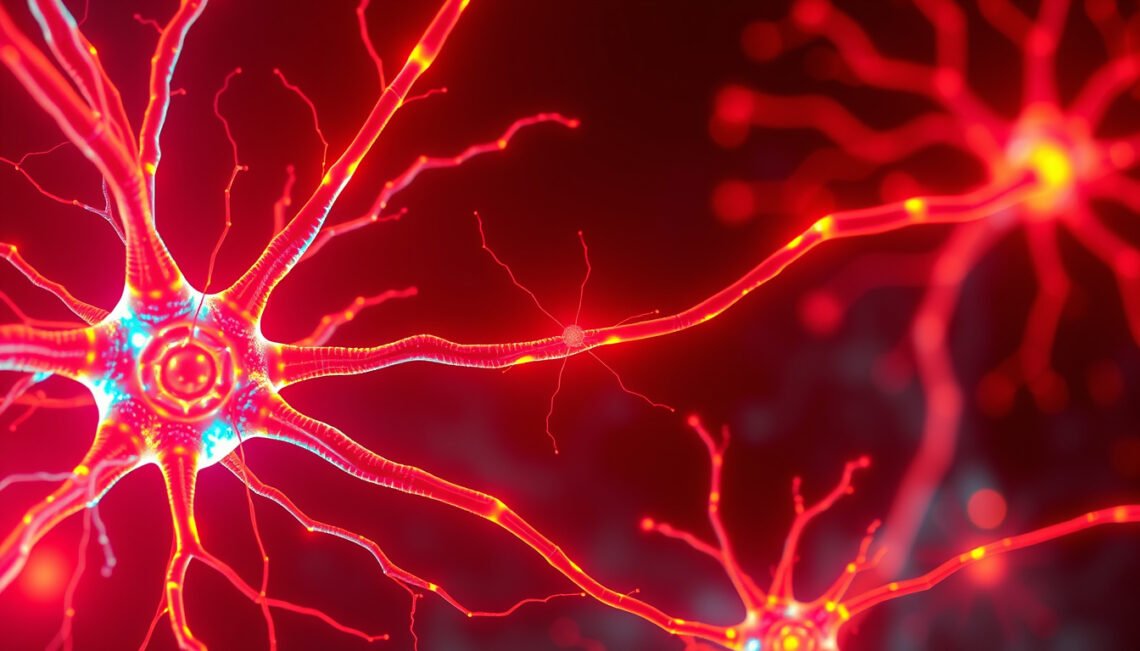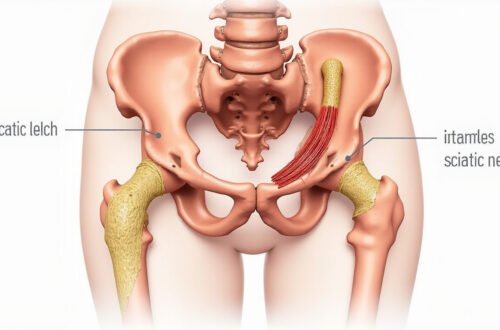Nerve inflammation is a condition that can significantly impact your daily life, causing pain, numbness, and weakness. This article aims to provide a comprehensive understanding of nerve inflammation, exploring its causes, symptoms, and the most effective treatment options. Whether you’re experiencing discomfort or looking to learn more about this condition, knowing what nerve inflammation entails can empower you to seek appropriate care and improve your quality of life.
What Is Nerve Inflammation?
Nerve inflammation, medically known as neuritis, refers to the swelling and irritation of a nerve or group of nerves. This inflammation can disrupt normal nerve function, leading to symptoms such as pain, tingling, or loss of sensation. While nerves are designed to transmit signals efficiently, inflammation causes them to malfunction, which can have widespread effects depending on the affected nerve’s location.
Understanding nerve inflammation is crucial because early diagnosis and treatment can prevent further nerve damage and alleviate symptoms effectively. It’s a condition that can affect anyone, but certain factors increase the risk, which we’ll explore next.
Causes of Nerve Inflammation
Numerous factors can lead to nerve inflammation. Pinpointing the root cause is essential for tailored treatment. Here are some common causes:
1. Infections
Certain bacterial, viral, or fungal infections can cause nerve inflammation. For example, shingles (herpes zoster) can inflame nerve fibers along with skin lesions.
2. Autoimmune Disorders
Conditions like multiple sclerosis (MS) or Guillain-Barré syndrome involve the immune system mistakenly attacking nerve tissues, resulting in inflammation.
3. Physical Injury
Trauma from accidents, surgeries, or repetitive strain can damage nerves, leading to localized inflammation.
4. Chronic Conditions
Diabetes is a prominent risk factor—particularly diabetic neuropathy—where high blood sugar damages nerve fibers, causing inflammation over time.
5. Toxins and Drugs
Exposure to certain toxins or prolonged use of neurotoxic medications may trigger nerve inflammation.
6. Nutritional Deficiencies
Deficiencies in vitamins such as B12 can impair nerve health, resulting in inflammation and nerve damage if untreated.
7. Other Factors
Chronic stress, alcoholism, and certain metabolic disorders can also contribute to nerve inflammation.
Recognizing the Symptoms of Nerve Inflammation
Symptoms of nerve inflammation can vary based on the affected nerve and severity. The primary symptoms include:
- Pain: Burning, stabbing, or aching sensations that may worsen with movement or during the night.
- Numbness or Tingling: Often described as “pins and needles,” especially in extremities.
- Weakness: Difficulty in muscle movement or coordination.
- Sensitivity: Increased sensitivity to touch or temperature changes.
- Loss of Function: In severe cases, partial or complete loss of sensory or motor function.
Common Locations for Symptoms:
- Peripheral nerves (hands, feet)
- Cranial nerves (face, head)
- Spinal nerves (back, limbs)
Prompt recognition of these symptoms is vital for early intervention and better outcomes.
Effective Treatments for Nerve Inflammation
Treatment strategies depend on the underlying cause, severity, and the nerves involved. Below are some of the most effective approaches:
1. Addressing the Underlying Cause
Treating the root cause—such as controlling blood sugar levels in diabetes or managing infections—can significantly reduce nerve inflammation.
2. Medications
- Anti-inflammatory drugs: Nonsteroidal anti-inflammatory drugs (NSAIDs) can relieve pain and swelling.
- Pain relievers: Acetaminophen or stronger narcotics may be prescribed for severe pain.
- Anticonvulsants and antidepressants: Drugs like gabapentin and amitriptyline help manage nerve pain.
- Steroids: Short-term use of corticosteroids can reduce severe inflammation.
3. Physical Therapy
Stretching, strengthening, and maintaining mobility help prevent muscle weakness and assist nerve regeneration.
4. Lifestyle Modifications
- Diet: Incorporate B-vitamin-rich foods to support nerve health.
- Exercise: Regular physical activity promotes blood flow and nerve repair.
- Avoid Toxins: Reduce exposure to harmful substances.
5. Alternative Therapies
Acupuncture, massage, and supplements such as omega-3 fatty acids have shown benefits in managing nerve inflammation symptoms.
6. Surgical Options
In cases where nerve compression or damage is severe, surgical intervention may be necessary to relieve pressure or repair damaged nerves.
How to Prevent Nerve Inflammation
Prevention strategies aim to maintain nerve health and minimize risk factors. Key tips include:
- Managing chronic conditions such as diabetes effectively
- Maintaining a balanced diet with adequate B-vitamins
- Practicing good ergonomics to prevent injury
- Avoiding excessive alcohol consumption
- Protecting yourself from infections with vaccines and hygiene
When to See a Healthcare Professional
If you experience persistent or worsening symptoms such as intense pain, weakness, or numbness, consult a healthcare provider promptly. Early diagnosis and treatment of nerve inflammation can prevent permanent nerve damage and improve recovery prospects.
FAQs About Nerve Inflammation
Q1: What are the common signs of nerve inflammation?
Common signs include burning pain, tingling sensations, numbness, muscle weakness, and heightened sensitivity in affected areas.
Q2: Can nerve inflammation be cured?
Many cases of nerve inflammation improve with proper treatment and management of underlying causes. Early intervention increases the chance for complete recovery.
Q3: How does nerve inflammation differ from nerve compression?
Nerve inflammation involves swelling and irritation of the nerve itself, while nerve compression results from structural pressure (such as herniated discs) squeezing the nerve. Both can cause similar symptoms but may require different treatments.
Conclusion: Take Action Against Nerve Inflammation Today
Understanding nerve inflammation — its causes, symptoms, and treatments — is the first step toward managing this condition effectively. If you suspect you’re experiencing nerve inflammation symptoms, don’t delay seeking medical advice. Early diagnosis and tailored treatment can lead to significant relief and prevent long-term damage. Prioritize your nerve health by maintaining a healthy lifestyle, managing chronic conditions, and consulting healthcare professionals when needed.
Take proactive steps today to protect your nerves and improve your quality of life. Your nervous system is vital—nurture it well!






